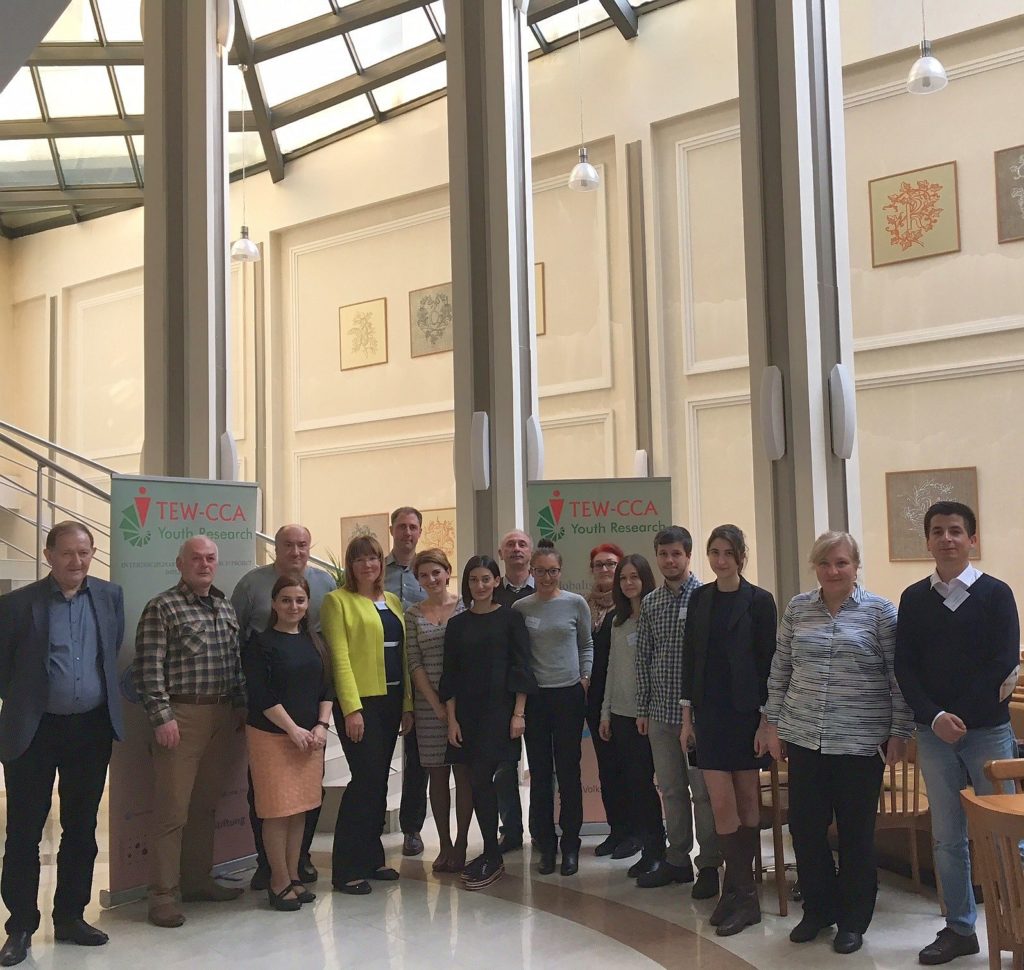
A third and last TEW-CCA workshop took place between 19th and 22nd of October 2017 in Tbilisi, Georgia. Our local partner, the institute Georgian Centre for Population Research (GCPR), organized the respective workshop in cooperation with the University of Bamberg. The agenda of the third TEW-CCA workshop included tasks defined in WP4 (Descriptive Analysis) and WP5 (Multivariate Analysis) as well as WP6 (Conducting of Qualitative Interviews and Analysis) of the project.
The coordinator of the TEW-CCA project, Prof. Dr. Michael Gebel, opened the workshop with a welcome speech addressed to participants and invited new TEW-CCA researchers and workshop guests to introduce themselves. After the Georgian country coordinator, Dr. Irina Badurashvili, gave her welcome speech, the first guest of the workshop, Ana Diakonidze (labour market and employment expert, IBF International Consulting/European Training Foundation (ETF)), shared the outcomes of her ETF Country Report on the youth labour market in Georgia.
The second half of the day was dedicated to the presentations by the national teams of Azerbaijan, Georgia, and Tajikistan of their first descriptive analysis concerning the topics of education, labour market, as well as family and welfare using TEW-CCA survey data. The intensive discussions of the results of both ETF and TEW-CCA studies helped to identify for further research two most urgent topics. These are the long periods of job search after leaving the education system and the high percentage of inactive youth (so-called “transition from education to home”). Another topic, which could be of special interest to national and international stakeholders, is the allocation patterns into vocational education and training (VET) and the labour market consequences of VET in all three countries, Azerbaijan, Georgia, and Tajikistan.
The second guest of the Tbilisi workshop, Marge Unt from Tallinn University (coordinator of the EU-Horizon2020 project-EXCEPT, http://www.except-project.eu/) presented empirical results of the EXCEPT research on the effects of labour market insecurities on leaving the parental home of youth (16-29y) in the EU. The presentation was followed by a discussion on the similarities and differences of the CCA and various EU countries and the implications of the EXCEPT research results for the future TEW-CCA research.
The presentations of the first workshop day and the fruitful discussions mentioned above were fundamental to the development of the research questions for further studies within WP5, multivariate analysis. The main research questions that were suggested by national researchers for WP5 include skills mismatch and the effect of VET education on the labour market integration of the youth in Georgia; the role of the family of origin for youths’ job search duration, ways of finding a job, and the employment opportunities of youth with VET qualifications in Tajikistan. The team in Azerbaijan will analyze the factors that affect educational attainment and the dynamics of integration into the labour market of youth in rural and urban areas.
Regarding WP6, all three teams (Azerbaijan, Georgia, and Tajikistan) presented their ideas and research questions for in-depth interviewing and qualitative analysis. After intense discussions, all teams agreed to jointly work on the key issues faced by all three countries within WP6. As mentioned before, the issues of the long-term unemployment of youth and the high percentage of young people who are inactive after leaving the education system are the main themes identified by the national teams as the topics which require in-depth research within TEW-CCA project. Accordingly, the teams agreed to develop a common questionnaire outline for the in-depth interview. Researching the same topic could allow the three project teams to improve their co-working capacities and offer comparative scientific research outcomes on the above topic.
In his concluding remarks, the coordinator of the project, Prof. Dr. Michael Gebel, thanked all the participants who contributed to the successful and fruitful workshop in Tbilisi.
